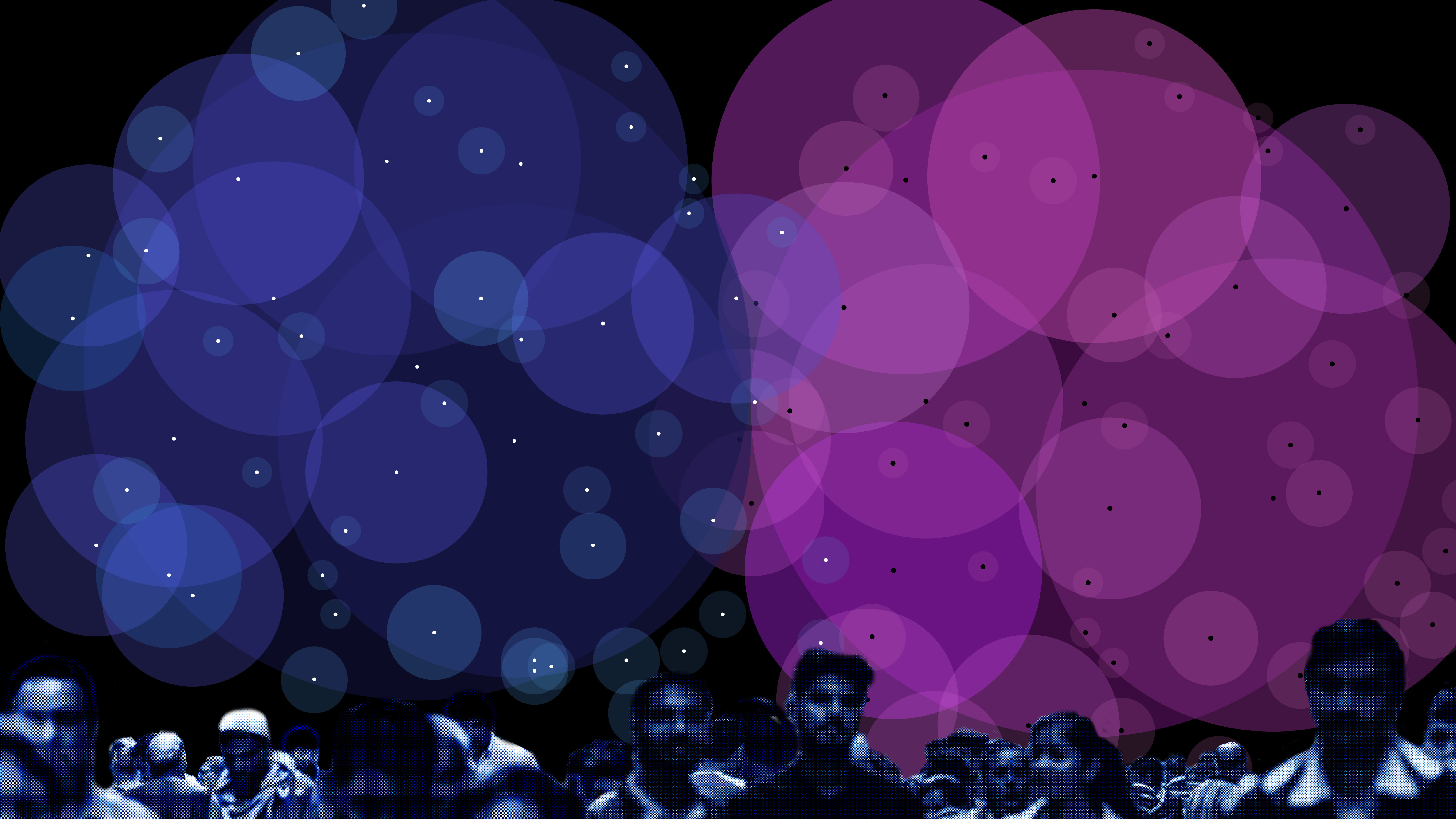Dr. Nicolò Pagan
|
|
Dr. Nicolò Pagan Postdoctoral Researcher Social Computing Group E-Mail: nicolo.pagan@uzh.ch |
Short biography
Nicolò joined the Social Computing Group as a Lecturer of the “Social Computing” course in February 2021 and as Post-Doctoral Researcher in May 2021. Between March and October 2024 he took an AI research scientist position at Giotto.ai to work on the ARC challenge. In January 2025, he rejoined the Social Computing Group supported by the Swiss National Science Foundation (SNSF), as part of the DemDialogueAI project funded through the Trans-Atlantic Platform's Democracy, Governance, and Trust initiative.
From January 2022 until December 2023, he was also a member of the National Centre of Competence in Research «Dependable, ubiquitous automation» (NCCR Automation).
In April 2021, he received his Ph.D. from ETH Zürich advised by Prof. Florian Dörfler, defending his dissertation titled “Modelling, Analysis, and Inference in Social Network Formation”.
Nicolò also holds a M.Sc. in Computational Science and Engineering from EPF Lausanne, a B. Sc. in Applied Mathematics from Politecnico di Torino (Italy), and he worked in the Computational Fluid-dynamics domain as a software engineer and research consultant at Ascomp AG, a spin-off of ETH Zürich.

Research Interest
Nicolò's primary research interests lie in the realm of AI ethics, where he explores the complex interplay between technology and human behavior in an intricate network system. Through his expertise in mathematical modeling, complex systems analysis, and data science, he is able to contribute to this field of study with a unique perspective, aiming to provide valuable insights to the ongoing discourse on the ethical implications of AI and technology in our rapidly evolving digital landscape.
More precisely, his current research revolves around two pillars:
- [Machine behavior & Complex Systems]: The use of generative AI, based on Large Language Models (LLMs), for building large-scale simulations of AI agents and understanding cooperation, competition, biases.
- [Generative Agent-Based Modelling for Social Media Simulations]: Validation on the use of generative Agent-Based Modelling for social media simulations.
In his previous work, he investigated the long-term fairness effect of feedback loops engendered by automated Machine Learning-based decision-making systems, the impact of recommender systems within social media platforms, with a particular emphasis on discerning how these systems influence the fairness of the network formation processes. Two of his works have been published in Nature Communications.
More broadly speaking, Nicolò is interested in Social and Engineering Systems and in problems that correspond to significant societal and ethical challenges, with an emphasis on areas such as autonomous systems, energy systems, finance, social networks, urban systems, and their underlying interconnections.
Publications
2023
- A. Bouleimen, N. Pagan, S. Cresci, A. Urman, and S. Giordano: Dynamics of toxic behavior in the Covid-19 vaccination debate. 12th International Conference on Complex Networks and their Applications (2023).
- N. Lanzetti, F. Dörfler, and N. Pagan: The Impact of Recommendation Systems on Opinion Dynamics: Microscopic versus Macroscopic Effects62nd IEEE Conference on Decision and Control (CDC) (2023).
- N. Pagan*, J. Baumann*, E. Elokda, G. De Pasquale, S. Bolognani, and A. Hannák: A Classification of Feedback Loops and Their Relation to Biases in Automated Decision-Making Systems3rd ACM Conference on Equity and Access in Algorithms, Mechanisms, and Optimization (EAAMO ’23).
- S. Ionescu, A. Hannák, and N. Pagan: Group Fairness for Content Creators: the Role of Human and Algorithmic Biases under Popularity-based Recommendations 17th ACM Conference on Recommender Systems 2023.
- S. Ioneuscu, A. Hannák, and N. Pagan: The Role of Luck in the Success of Social Media Influencers, Applied Network Science (2023).
- A. Maddux, N. Pagan, G. Belgioioso, and F. Dörfler: Data-Driven Behaviour Estimation in Parametric Games, 22nd World Congress of the International Federation of Automatic Control (2023).
2022
- S. Ionescu S, N. Pagan, A. Hannak: Individual Fairness for Social Media Influencers. 11th International Conference on Complex Networks and their Applications 2022.
2021
- N. Pagan, W. Mei W, C. Li, F. Dörfler:A meritocratic network formation model for the rise of social media influencers. Nature Communications. 2021 Nov 30;12(1):1-2.
2019
- N. Pagan, F. Dörfler: Game theoretical inference of human behavior in social networks. Nature communications. 2019 Dec 3;10(1):1-2.
Teaching
- 2021: Lecturer of the Social Computing course.
Open Projects
- LLM Cover Letter generation and evaluation: a comparative study
- Exploratory analysis of Chirper.ai, the AI-only social media platform
- Dynamics of consensus in LLMs opinion formation
See the full list here.
Recently supervised projects
- 10/2023 - present: Jiaqi Zhang, University of Zurich. Master Thesis: Using generative AI for modelling large-scale human behaviour for health notification interventions
- 03/203 - 08/2023 Michael Blum, University of Zurich. Independent Study: How Specialization Shapes Pattern Recognition: Empirical Evidence from the Domain of Chess.
- 05/2022 - 05/2023. Maria Helena Margareta Pelli and Andrianos Michail, University of Zürich. Master Project: A longitudinal study of emotions on Twitter chains of re-tweets”.
- 03/2022 - 07/2022. Jules Authier, ETH Zürich. Semester Project: Analysis of the Closed-Loop between Recommender Systems and Opinion Dynamics
-
06-2021 - 11/2021. Michael Blum, University of Zürich. Bachelor Thesis: Learning and success in chess: the role of opening patterns.
